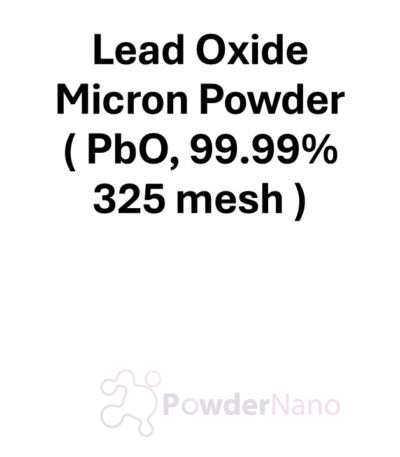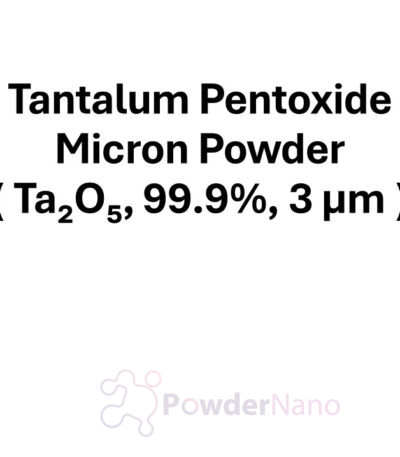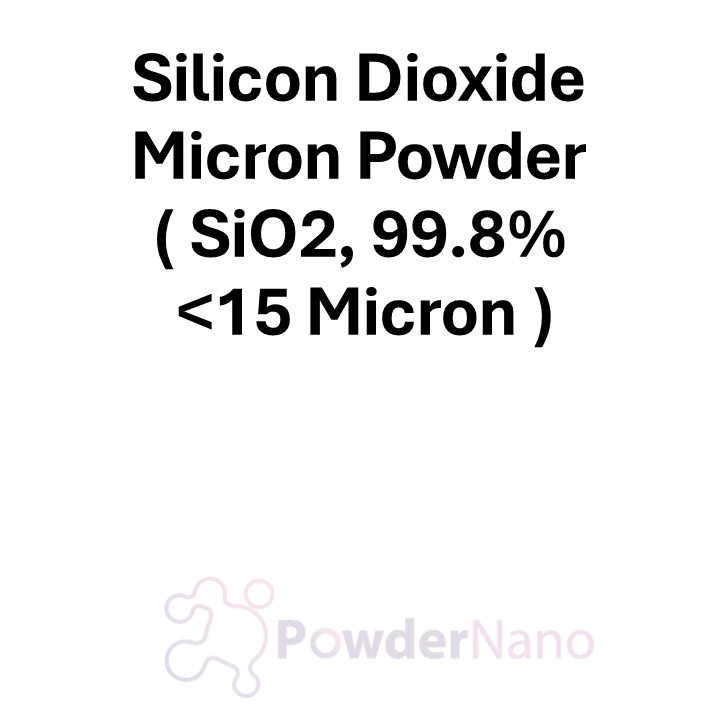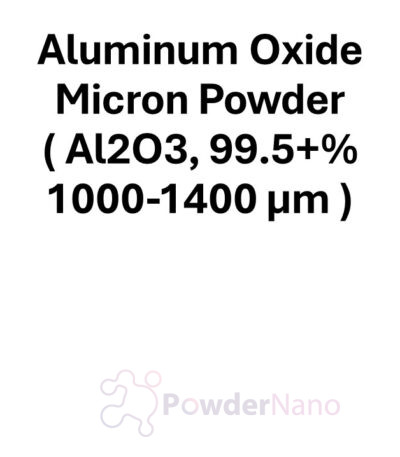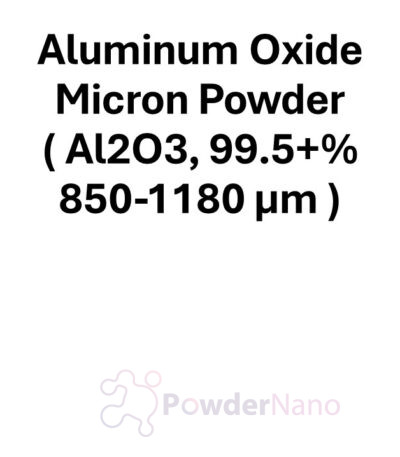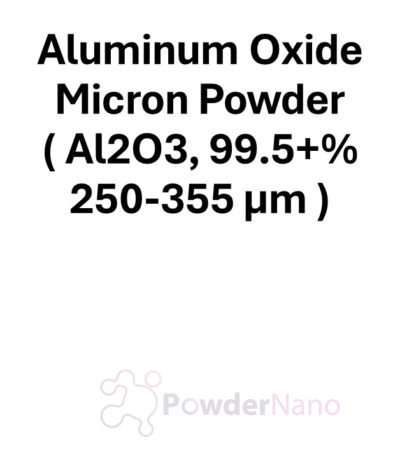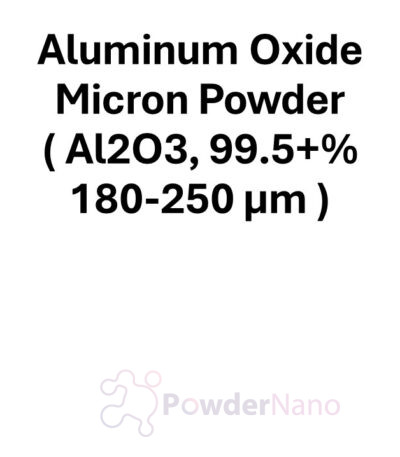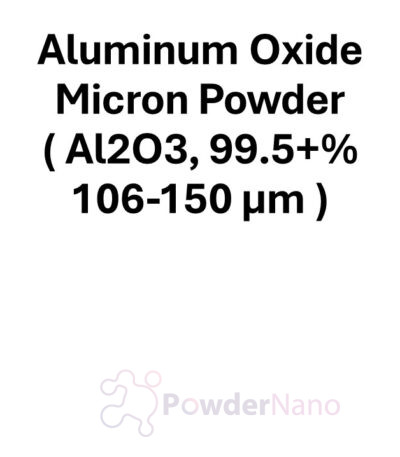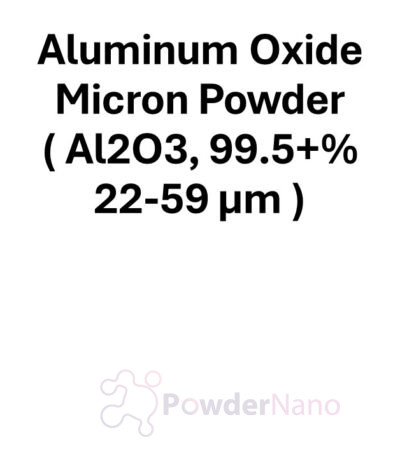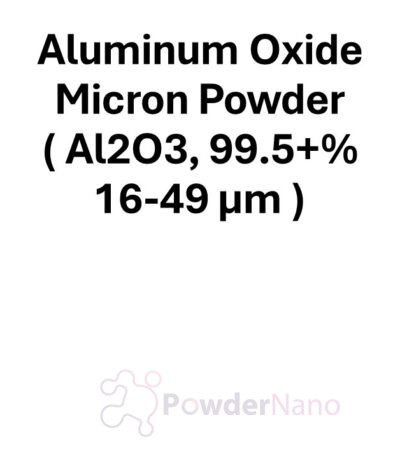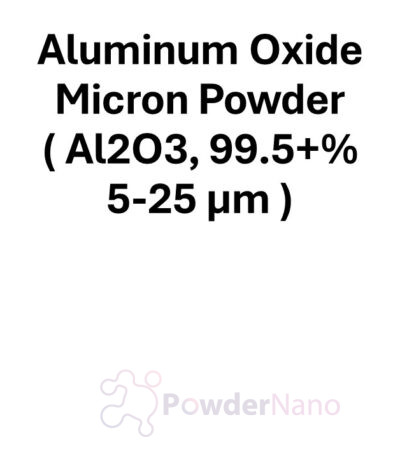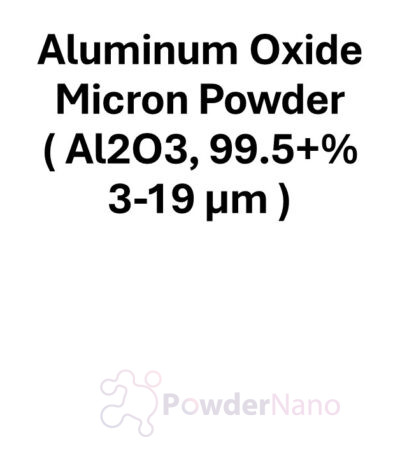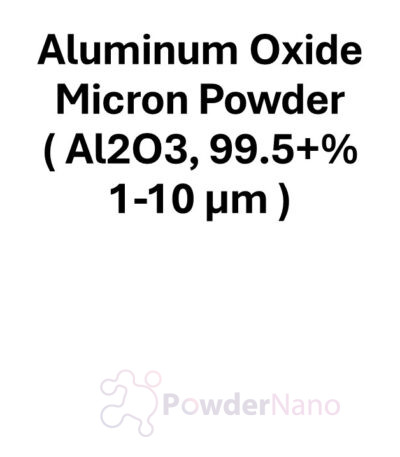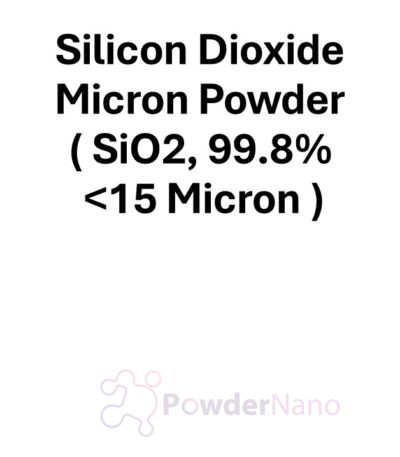Silicon Dioxide Micron Powder (SiO₂, 99.8%, <15 Micron)
Technical Specifications:
- Chemical Formula: SiO₂
- Purity: 99.8% (high purity)
- Particle Size: <15 Micron (microns)
- Appearance: White to off-white powder
- Density: Approximately 2.2 g/cm³
- Melting Point: 1,600°C (2,912°F)
- Boiling Point: Sublimes at high temperatures (does not have a definitive boiling point under normal pressure)
- Molecular Weight: 60.08 g/mol
- Solubility: Insoluble in water, dilute acids, and bases
- Crystal Structure: Amorphous or crystalline, depending on the form and temperature of synthesis (e.g., quartz, tridymite, cristobalite)
- Refractive Index: ~1.45
Applications:
- Cosmetics and Personal Care Products:
- Silicon Dioxide is commonly used as a thickening agent, anti-caking agent, and absorbing agent in cosmetics and personal care products. It helps improve the texture, consistency, and performance of products like face powders, foundations, sunscreens, shampoos, and toothpastes.
- It is also used in the manufacture of dry shampoos and deodorants for its oil-absorbing properties.
- Food Industry:
- Silicon Dioxide is used as an anti-caking agent in powdered food products such as spices, salt, sugar, and instant drink mixes. It helps to keep the powders free-flowing by preventing clumping, ensuring ease of use and prolonged shelf life.
- It is also used in the food industry as a carrier for flavorings and colors, especially in tablet production.
- Pharmaceutical Industry:
- Silicon Dioxide is used in pharmaceutical formulations as a binder, filler, and flow agent for tablets and capsules. It ensures uniformity in the consistency and helps in the manufacturing of pills with controlled release.
- It also has applications in suspension formulations, where it acts as a stabilizer to prevent settling and improve the consistency of liquid medicines.
- Electronics and Semiconductor Industry:
- Silicon Dioxide is widely used as an insulating material and dielectric layer in the semiconductor industry, particularly in the production of integrated circuits and microchips. It helps in protecting the underlying components from contamination and facilitates the production of reliable, high-performance electronic devices.
- It also plays a key role in solar cells as an essential material for creating the transparent conductive layers required in the photovoltaic cells.
- Construction and Building Materials:
- Silicon Dioxide is used in concrete, cement, and mortar formulations to enhance the strength, durability, and thermal resistance of building materials. It is often in the form of silica fume or microsilica and is added to concrete to increase its compressive strength and resistance to corrosion.
- It is also a key ingredient in the production of bricks, tiles, and glass, where its physical properties improve the performance and longevity of these materials.
- Rubber and Plastics Industry:
- Silicon Dioxide is used as a reinforcing agent in rubber to enhance the strength, wear resistance, and durability of products such as tires and seals. It improves abrasion resistance and traction and helps reduce rolling resistance in tires, improving fuel efficiency in vehicles.
- It is also used in the plastics industry to enhance mechanical properties and thermal stability.
- Paints and Coatings:
- Silicon Dioxide is widely used in the paint and coatings industry as an opacifying agent and to improve the scratch resistance and durability of paints and coatings. It is used in both water-based and solvent-based formulations to enhance the finish quality and increase the longevity of the coatings.
- It is particularly beneficial in matte finishes and high-durability coatings for use in the automotive and industrial sectors.
- Filtration and Separation:
- Silicon Dioxide is employed in filtration applications as a filter medium for liquids and gases, especially in the food, pharmaceutical, and chemical industries. It is used for solid-liquid filtration in various processes such as water purification, chemical separation, and oil filtration.
- It is also used in air purification systems and industrial filtration units to trap fine particles and contaminants.
- Thermal Insulation:
- Silicon Dioxide is a key material in the production of thermal insulation products, including insulation boards, fiberboard, and refractory materials. It is used in high-temperature applications, such as in furnaces and kilns, where its high melting point provides excellent thermal protection.
- Aerogel Production:
- Silicon Dioxide is used in the manufacture of aerogels, which are ultra-lightweight, highly porous materials. Aerogels have excellent insulating properties and are used in applications requiring thermal insulation, such as in space exploration (insulation for spacecraft) and advanced coatings for various industries.
- These aerogels can be used in high-tech industries such as electronics, nanotechnology, and environmental science.
- Glass Manufacturing:
- Silicon Dioxide is a primary constituent of glass. It is used in the production of silica glass, fiber optics, optical lenses, and window glass. Its high thermal stability and optical transparency make it essential in the manufacture of specialty glass for a variety of applications, including high-precision optics and laboratory glassware.
- Energy Storage:
- Silicon Dioxide is used in energy storage devices, such as batteries and supercapacitors, to improve their energy density and charge/discharge efficiency. It is utilized in the development of high-performance anodes for lithium-ion and sodium-ion batteries.
Silicon Dioxide Micron Powder (SiO₂, 99.8%, <15 Micron) is a versatile and widely used material in various industries due to its chemical stability, durability, and non-toxic nature. Its applications span across fields such as cosmetics, electronics, construction, rubber and plastics, and energy storage, making it an essential component in both consumer products and industrial processes.
